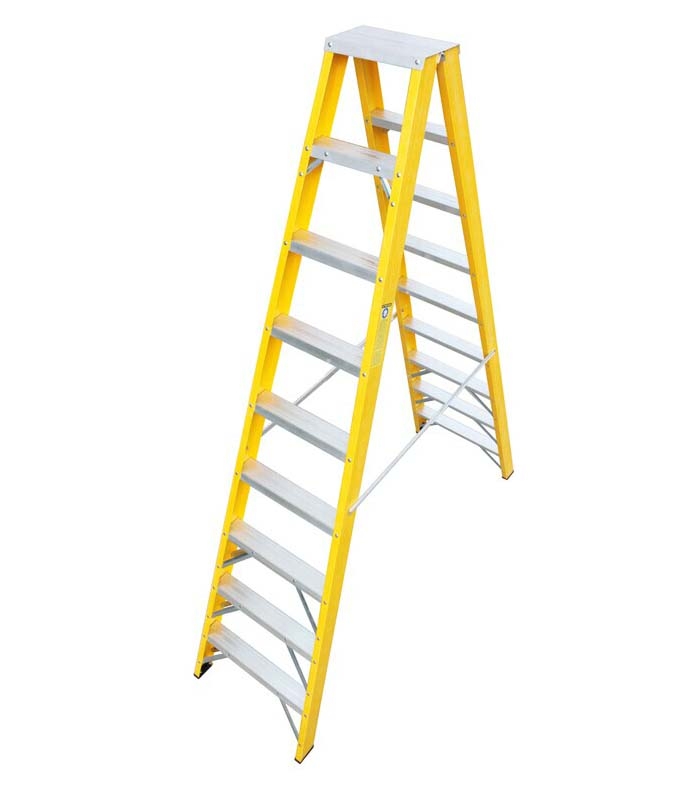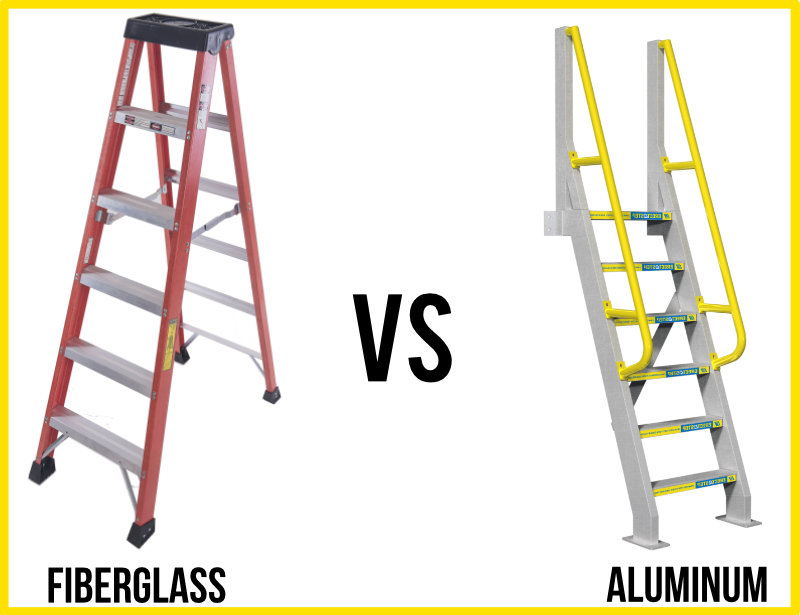While it’s hard to beat a ladder for reaching out-of-reach heights, picking the right ladder for the job isn’t always easy.
Ladders come in many sizes and styles, as well as two main materials: fiberglass and steel.
Both materials have their pros and cons, and choosing the best ladder for you depends on your specific needs and budget.
Here’s a quick overview to help you decide:
Height and Weight
While fiberglass and aluminum ladders can technically be made to any height, the weight of fiberglass ladders increases with height, making fiberglass extension ladders difficult to handle by one person alone. As a result, fiberglass is typically used only for step ladders.
Aluminum is lighter and easier to transport than fiberglass, making it a better — and more commonly used — material for straight and full-length extension ladders and even, mobile platform ladders.
Strength
Fiberglass ladders are typically stronger and more rigid than aluminum ladders, but, as we mentioned above, they’re also heavier. While they come in varying sizes capable of supporting varying weights, heavy-duty models support a maximum of 375 pounds. So, if you and/or your team needs more support, opt for an aluminum model.
Aluminum models can support up to 500 pounds, which is recommended if you need to support more than one person. You could also install a fixed ladder fall arrest system for added protection and peace of mind of workers.
Durability
Fiberglass is more durable and long-lasting than aluminum due to its superior weather-resistant nature. You can expose a fiberglass ladder to sun or rain for days on end, and it won’t rust or lose strength.
While aluminum might not be as durable as fiberglass, aluminum ladders can have long lifespans of their own if they are kept out of the elements and properly maintained. Couple it with aluminum guardrails or a handrail system and you’ll have access for years.
Portability
Ladders must be moved on a regular basis. As we mentioned above, fiberglass ladders are significantly heavier than aluminum ones, which makes them a less desirable option in many settings.
As a result, aluminum ladders are preferred at construction sites and elsewhere where portability is key.
Cost
Not only do aluminum ladders weigh less than fiberglass ladders, but they typically cost less, too. This can make them a superior option for use outdoors or in controlled settings.
 Safety
Safety
Ultimately, safety is the most important factor when choosing a ladder, and the safety level of a particular ladder depends on how and where it’s used.
Fiberglass ladders are safer than their aluminum counterparts due to their electrical and heat resistance.
While rubber stand-offs and other insulation methods have expanded aluminum ladders’ usability range, these ladders should never be used near electrical wires.
Aluminum ladders can also bend when exposed to heat, making them unsafe to use unless they aren’t too badly damaged and can be repaired.
Which Is Best?
Aluminum ladders are ideal for industrial, construction, and other industries that call for workers to reach high heights.
Commonly used as step ladders, fiberglass models are ideal for smaller jobs, like painting, hedge trimming, cleaning gutters, and fence or roof repairs. And again, as we mentioned above, they should be your only choice when working with or near power lines or electrical wires.
Shop Now
Select the right ladder for you based on your needs and priorities. Shop now a wide range of ladders through our shop page.


 Safety
Safety
Leave a comment
Your email address will not be published. Required fields are marked *